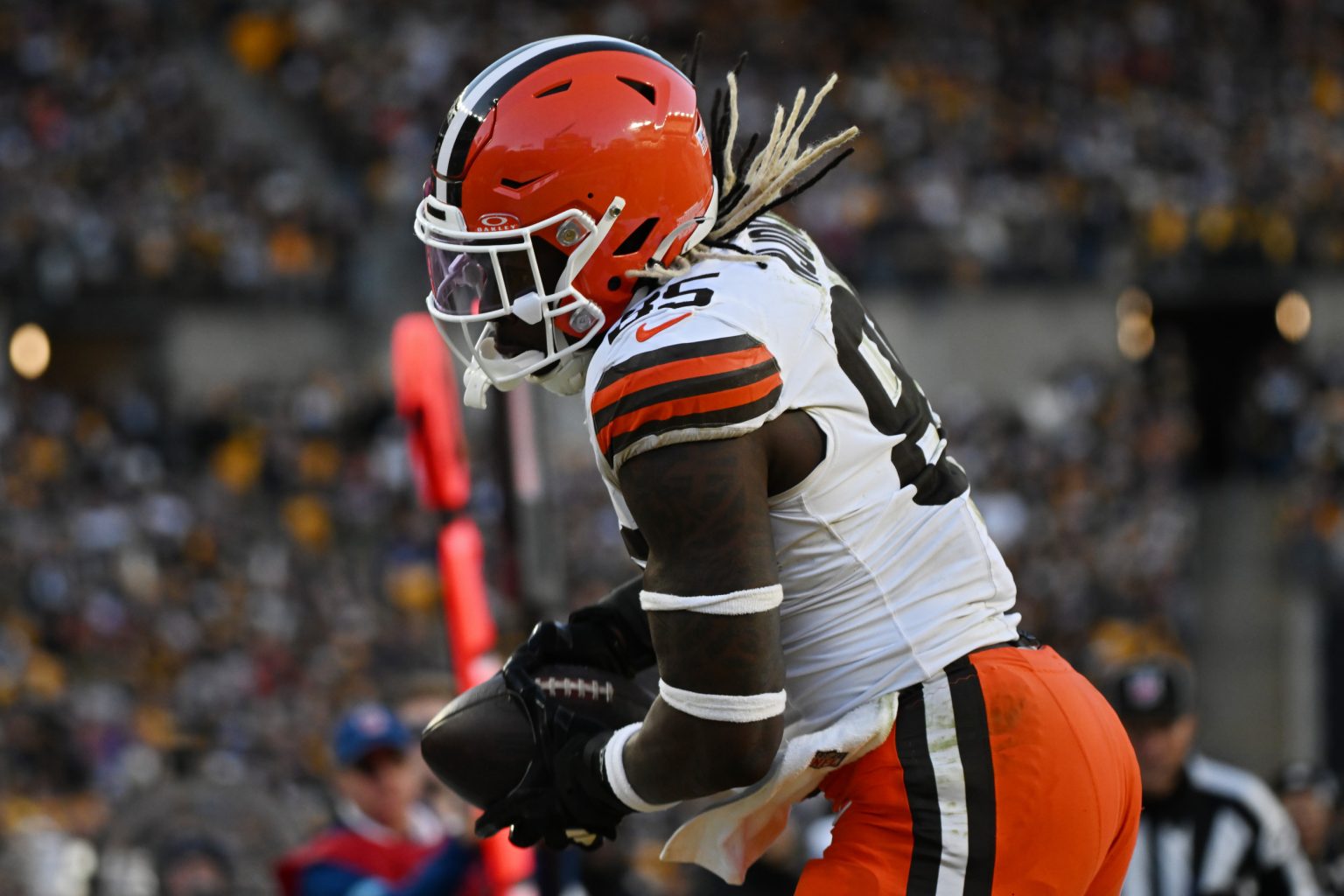David Njoku’s Absence Casts Shadow Over Browns’ Clash with Chiefs: A Deep Dive into the Implications
The Cleveland Browns’ highly anticipated showdown against the Kansas City Chiefs was marred by the absence of star tight end David Njoku, who was officially declared inactive due to a lingering hamstring injury. The decision, made after pre-game warmups, underscores the Browns’ cautious approach to managing Njoku’s recovery and preventing further aggravation of the injury. The implications of Njoku’s unavailability ripple through multiple facets of the Browns’ game plan, impacting their offensive strategy, personnel deployment, and overall matchup against the formidable Chiefs defense. Njoku’s absence leaves a significant void in the Browns’ offensive arsenal, particularly in the passing game where his athleticism, size, and route-running prowess make him a valuable target for quarterback Deshaun Watson.
Njoku’s role as a dual-threat tight end, capable of both blocking and receiving, makes his absence particularly challenging to overcome. His absence forces the Browns to rely more heavily on other tight ends and receivers, potentially altering their play-calling and limiting their offensive versatility. Harrison Bryant and Jordan Akins are likely to see increased snaps, but neither possesses the same blend of size, speed, and receiving ability that Njoku brings to the table. The Browns may also incorporate more two-tight end sets to compensate for Njoku’s absence, impacting the personnel groupings and potentially altering the run-pass balance. The lack of Njoku’s blocking prowess may also affect the effectiveness of the Browns’ running game, particularly in situations requiring extra blocking support against the Chiefs’ defensive front.
The impact of Njoku’s absence extends beyond his individual contributions. His presence often draws defensive attention, creating opportunities for other receivers and opening up running lanes. Without Njoku on the field, the Chiefs’ defense can focus more resources on containing other key Browns players like Amari Cooper and Nick Chubb. This concentrated defensive pressure could hinder the Browns’ offensive flow and limit their ability to generate explosive plays. Furthermore, Njoku’s leadership and experience, especially in crucial situations, are intangible qualities that are difficult to replace. His absence potentially affects the team’s overall morale and on-field communication, particularly in critical moments of the game.
Looking at the matchup specifically, Njoku’s absence presents a significant advantage for the Chiefs defense. The Chiefs can now allocate more defensive resources to covering other offensive threats, potentially double-teaming Amari Cooper or stacking the box against Nick Chubb. This strategic flexibility allows the Chiefs to dictate the terms of engagement and force the Browns into less favorable offensive situations. Moreover, Njoku’s absence weakens the Browns’ red zone offense, where his size and catching ability make him a prime target for touchdowns. The Chiefs can now focus on defending other red-zone threats, making it more challenging for the Browns to convert scoring opportunities.
The Browns’ coaching staff faced a difficult decision regarding Njoku’s availability. While his presence on the field would undoubtedly boost the offense, risking further injury could sideline him for a more extended period. The decision to hold him out reflects a long-term perspective, prioritizing Njoku’s health over short-term gains. This cautious approach aims to ensure Njoku’s full recovery and availability for the remainder of the season, emphasizing the importance of his contributions to the team’s overall success. While the Browns will undoubtedly miss Njoku’s presence against the Chiefs, the decision to prioritize his health demonstrates a commitment to long-term strategic planning and player well-being.
In conclusion, David Njoku’s absence due to a hamstring injury creates a significant challenge for the Cleveland Browns in their matchup against the Kansas City Chiefs. His contributions as a receiver, blocker, and leader are difficult to replicate, impacting the Browns’ offensive strategy, personnel deployment, and overall matchup dynamics. While other players will step up to fill the void, Njoku’s absence undeniably weakens the Browns’ offensive arsenal and provides a strategic advantage to the Chiefs defense. The Browns’ decision to prioritize Njoku’s long-term health underscores their commitment to strategic planning and player well-being, even in the face of a challenging matchup against a formidable opponent.

